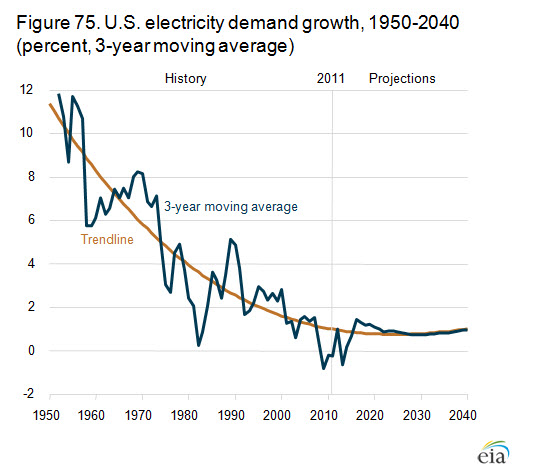Electricity
Energy in Brief articles
What is the electric power grid?
The grid of electric power lines has evolved into three large interconnected systems that move electricity around the country. Standards have been developed by the electric power industry to ensure coordination for the linked operations.How much of our electricity is generated from renewable sources?
U.S. power plants used renewable energy sources — water (hydroelectric), wood, wind, organic waste, geothermal, and sun — to generate about 13% of our electricity in 2011.See all Energy In Brief articles ›
Electricity Explained
Electricity in the United States
Most of the electricity in the United States is produced using steam turbines. Coal is the most common fuel for generating electricity in the United States. In 2011, 42% of the country's nearly 4 trillion kilowatthours of electricity used coal as its source of energy.Use of electricity
Electricity consumption totaled nearly 3,856 billion Kilowatthours (kWh) in 2011. U.S. electricity use in 2011 was more than 13 times greater than electricity use in 1950.See more electricity topics ›
Features
 Short-Term Energy Outlook
Short-Term Energy Outlook
Released November 13, 2013EIA's monthly energy projections through 2014 includes projections for electricity generation and prices.
 Electricity Monthly Update
Electricity Monthly Update
Released October 24, 2013The Electricity Monthly Update is a new EIA product that replaces the Monthly Flash Estimates for Electric Power Data, containing the most recently monthly data.
 Electric Power Monthly
Electric Power Monthly
Released November 20, 2013Provides monthly statistics at the state, Census division, and U.S. levels for net generation, fossil fuel consumption and stocks, quantity and quality of fossil fuels, cost of fossil fuels, electricity sales, revenue, and average revenue per kilowatthour of electricity sold.

Annual Energy Outlook 2013
Released April 15, 2013–May 2, 2013 Recently released content includes a Legislation and Regulations section that discusses evolving issues, a Market Trends section that highlights projections for energy markets, and a comparison of AEO2013 with projections from other organizations.






No comments:
Post a Comment